I'm sure they have very different paintings on their own walls
Jelato Love - Palma Mallorca, Spain
3 March - 21 April 2018
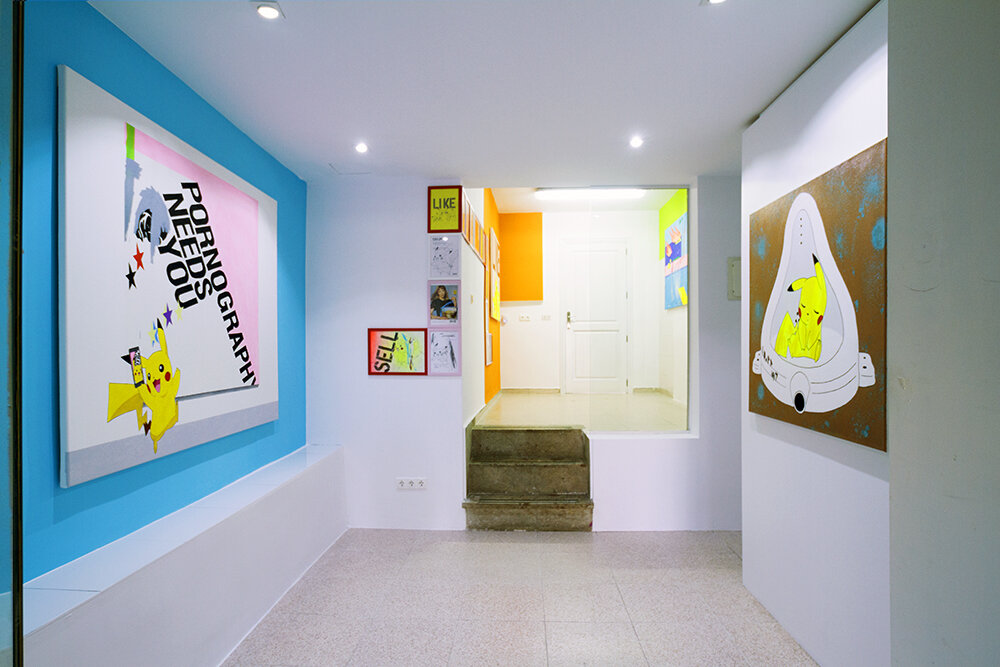
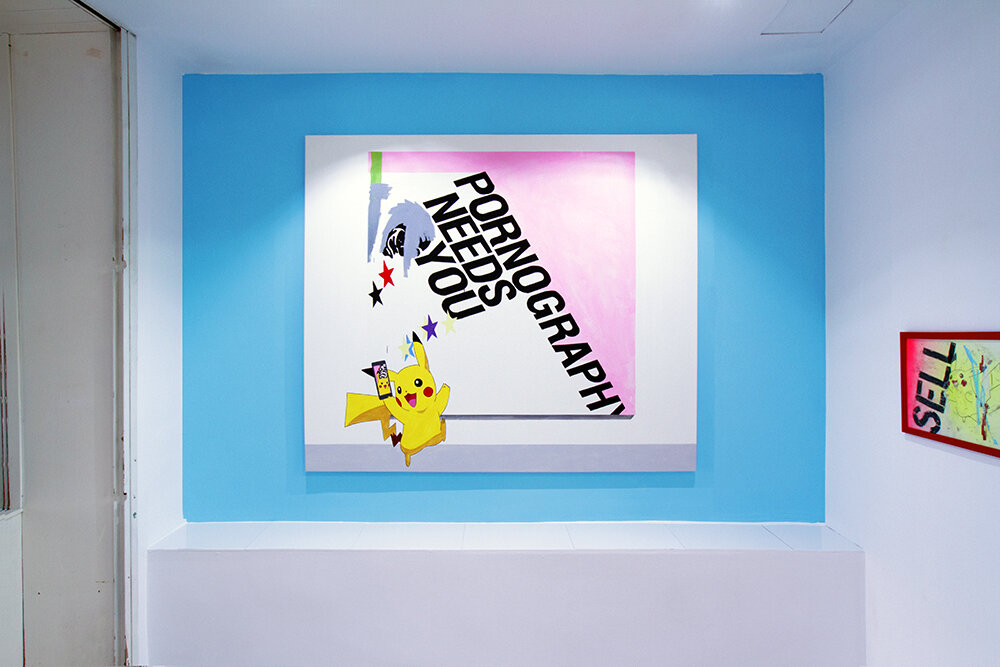
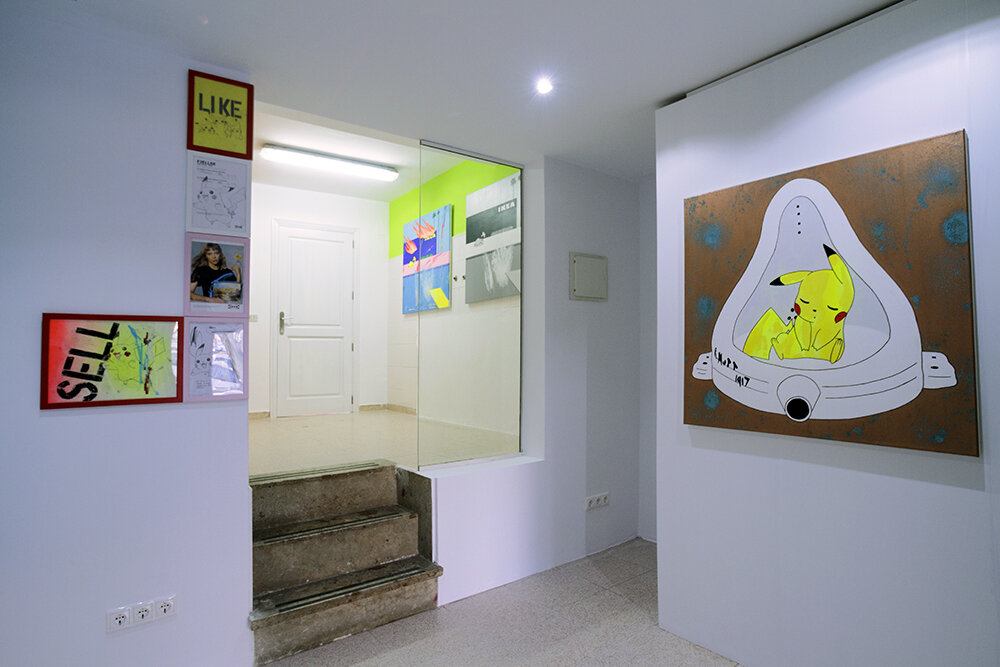
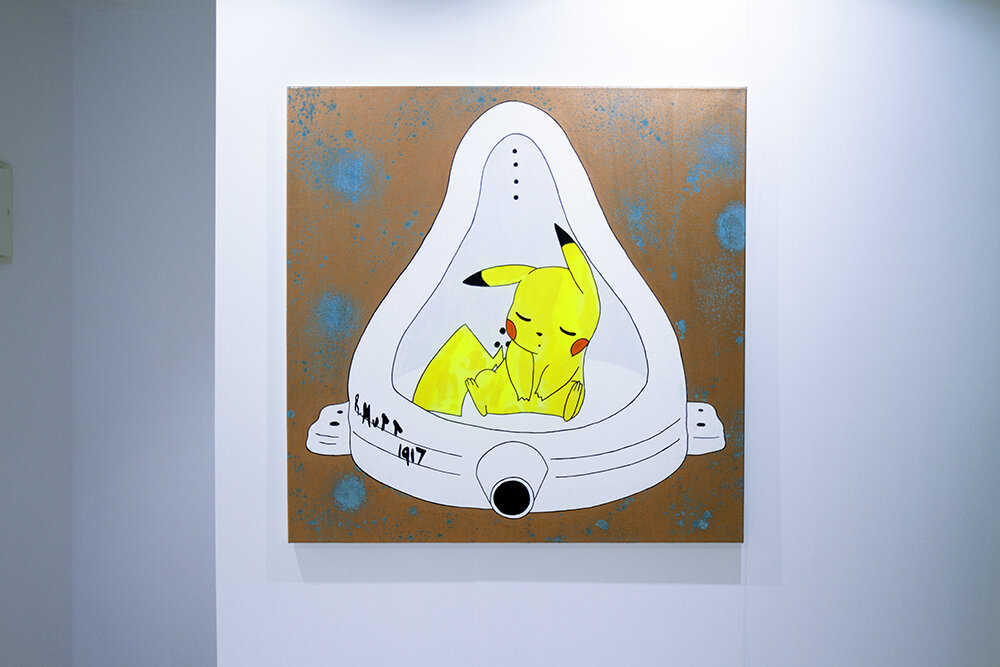
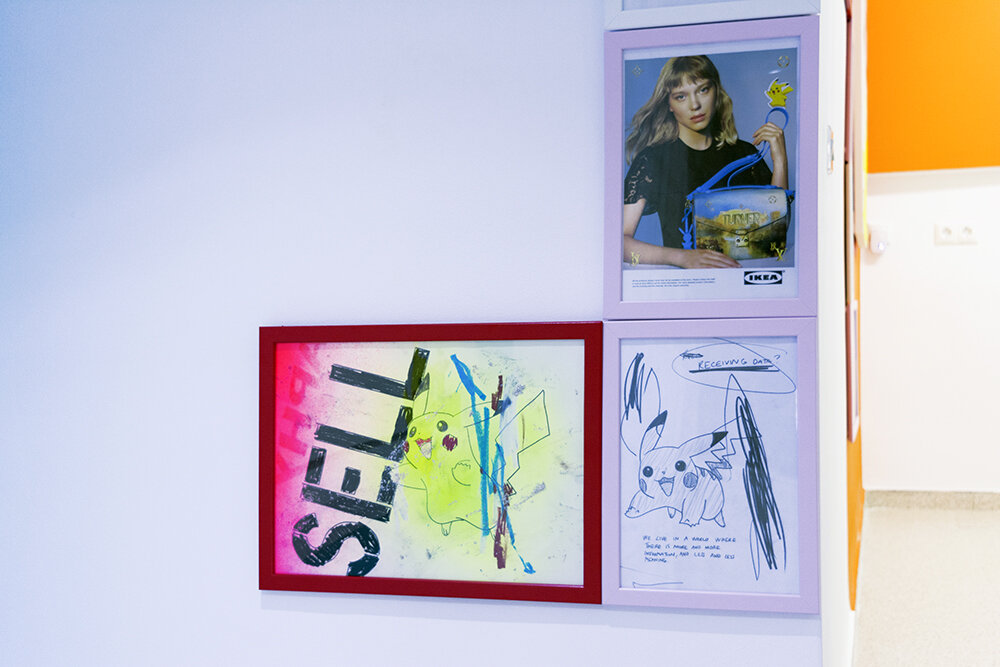
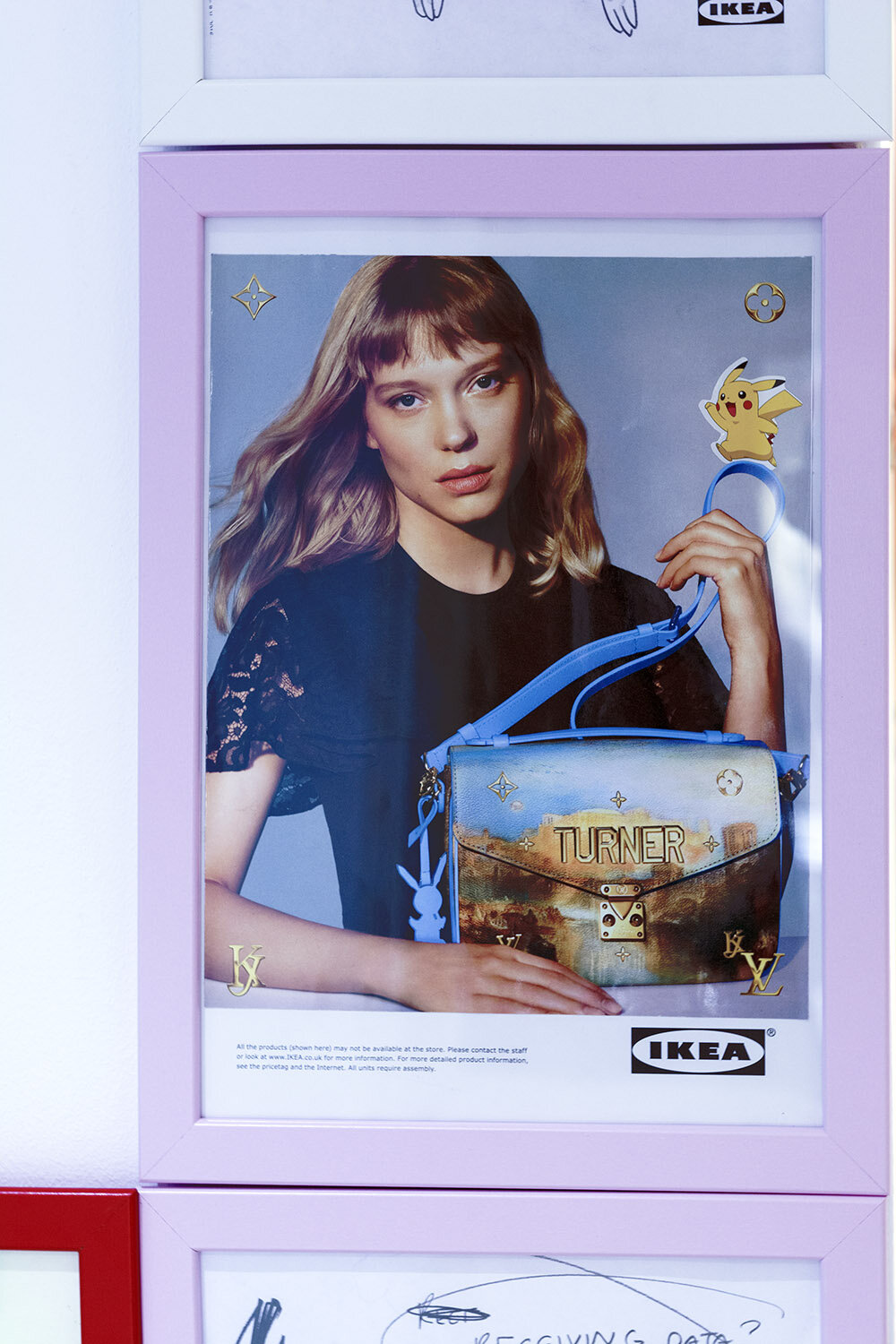
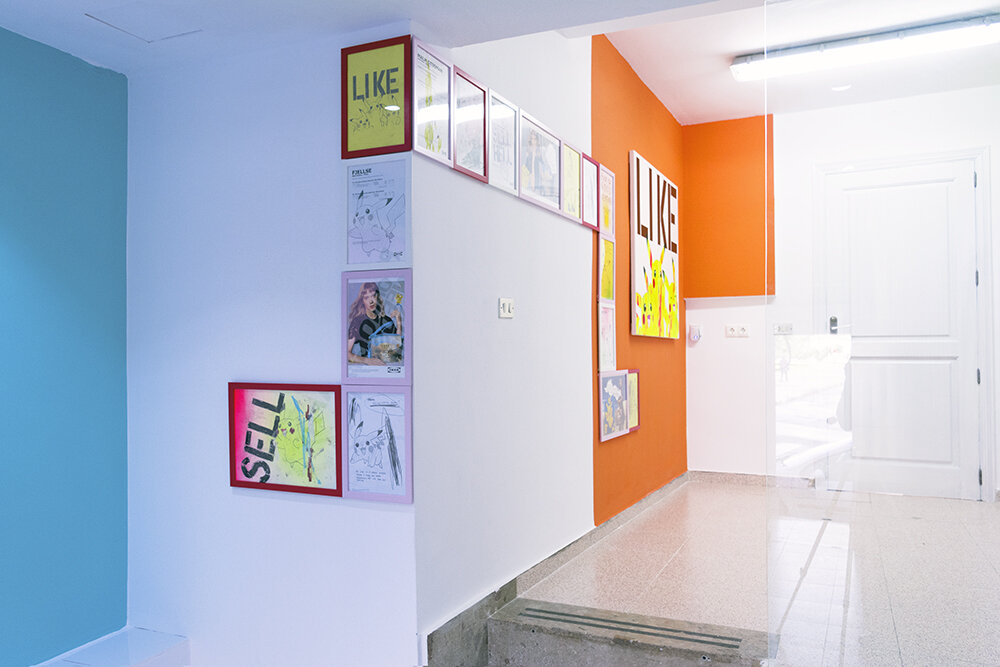
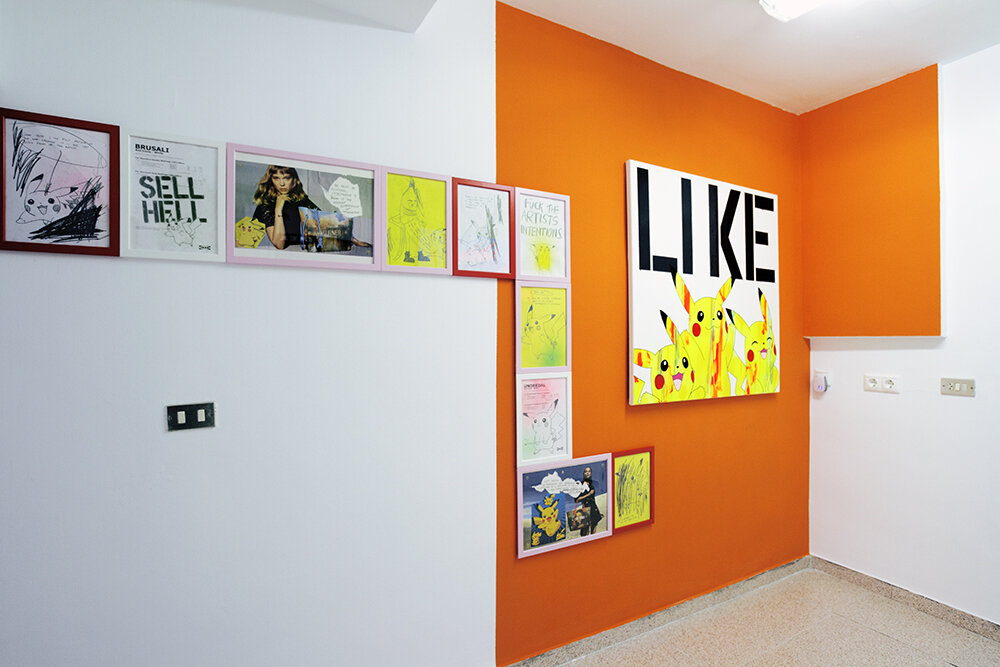
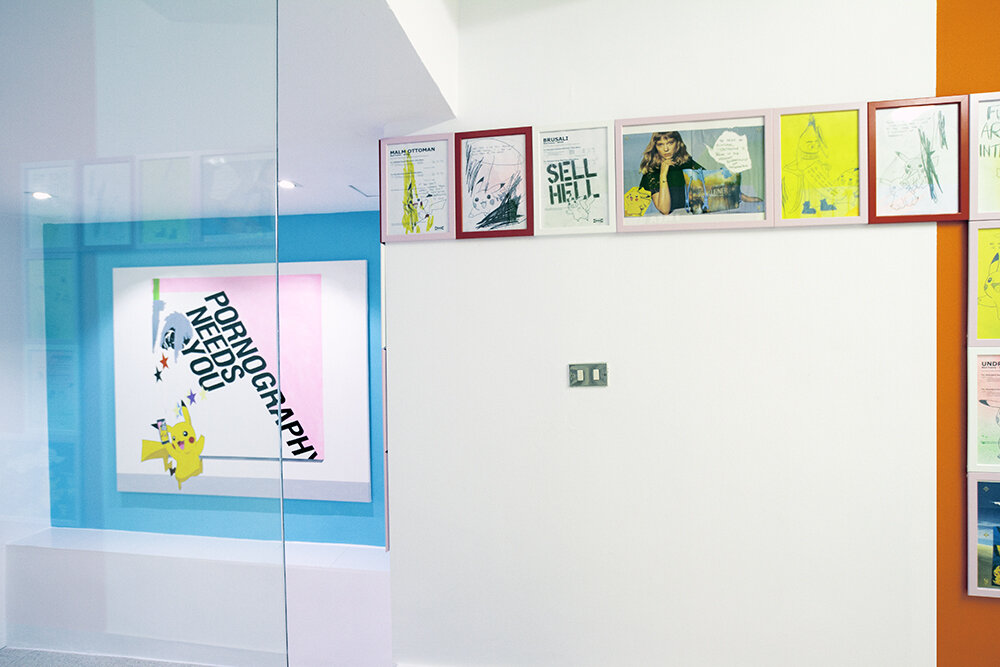
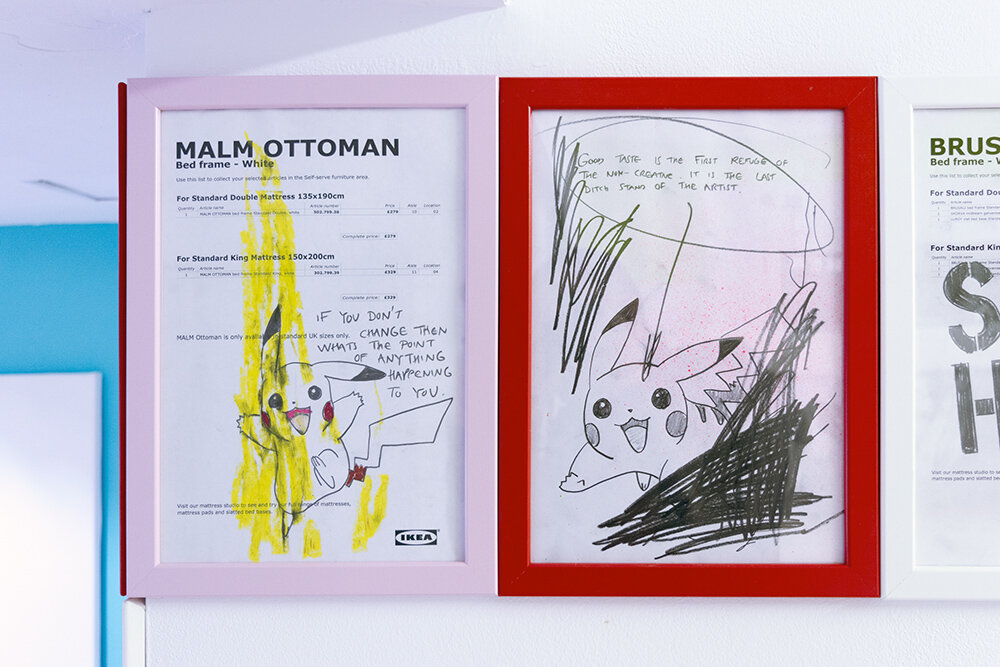
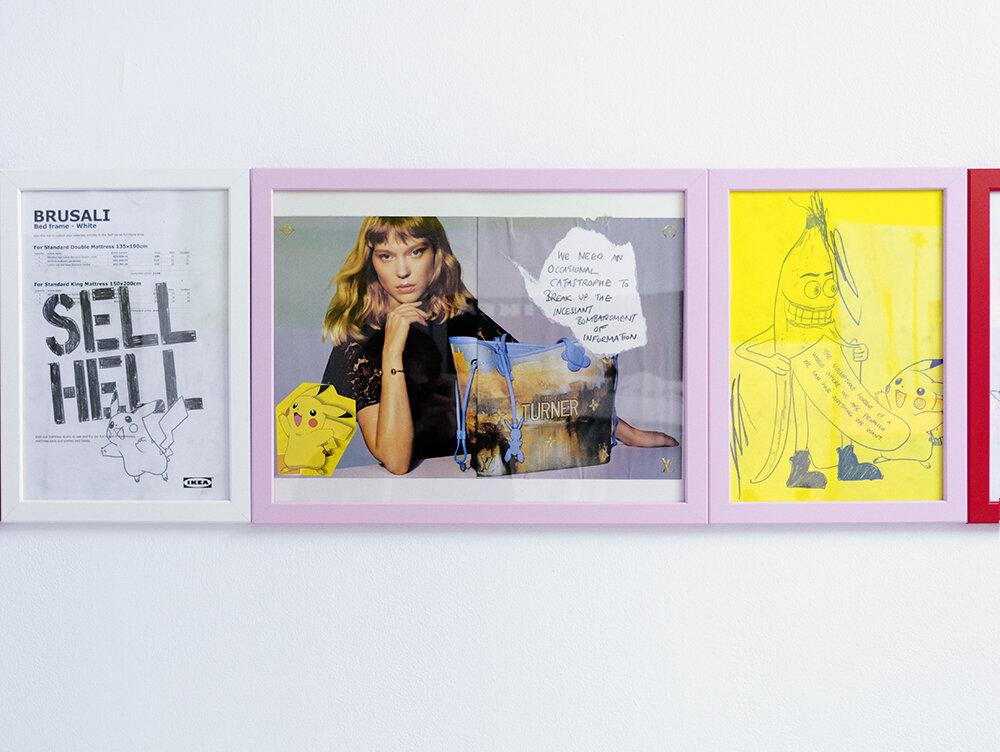
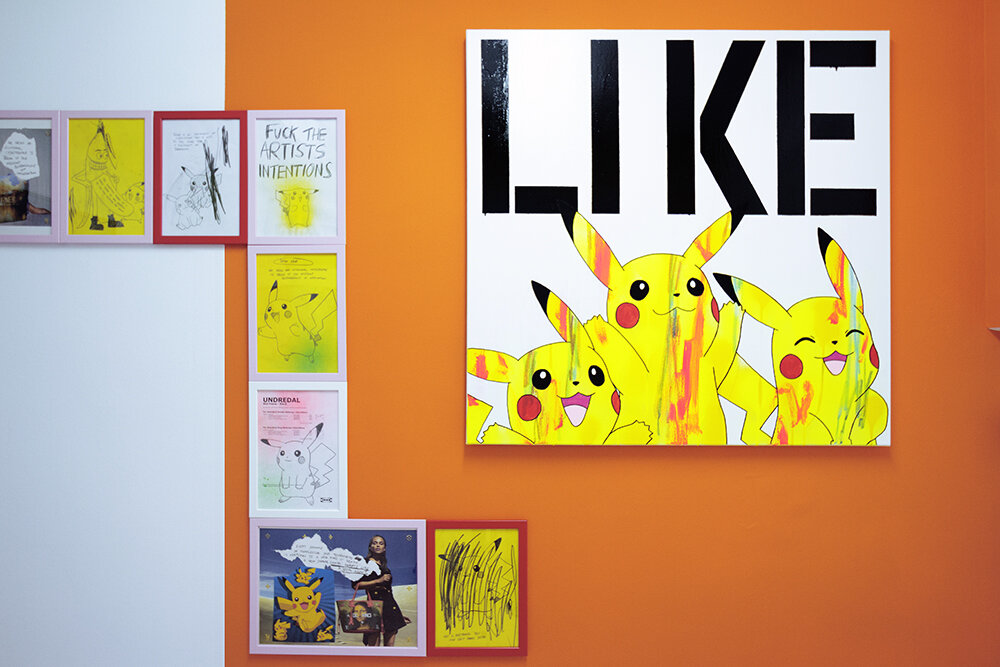
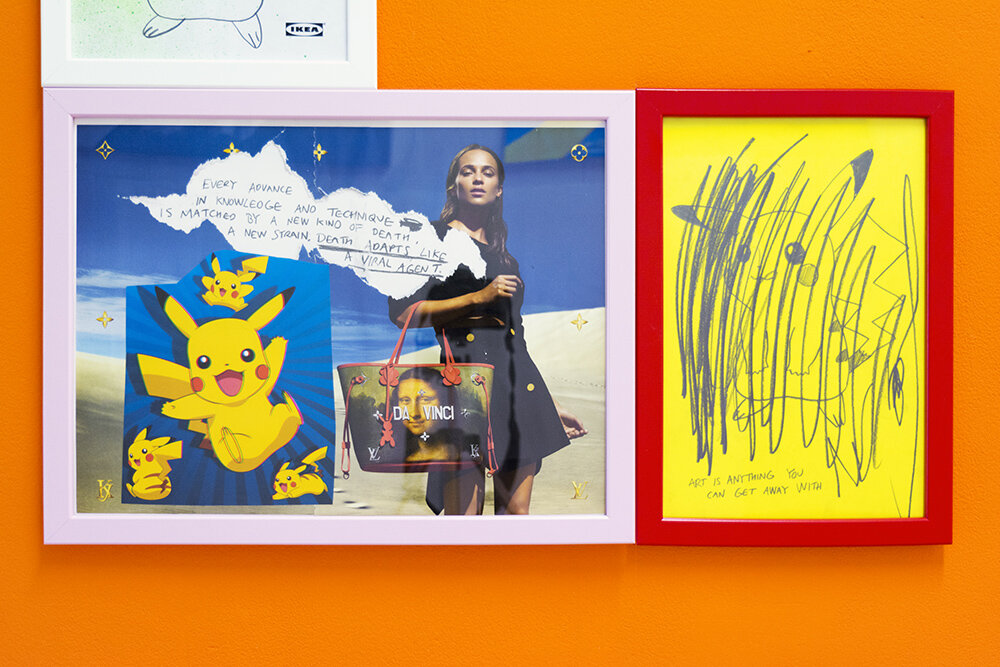
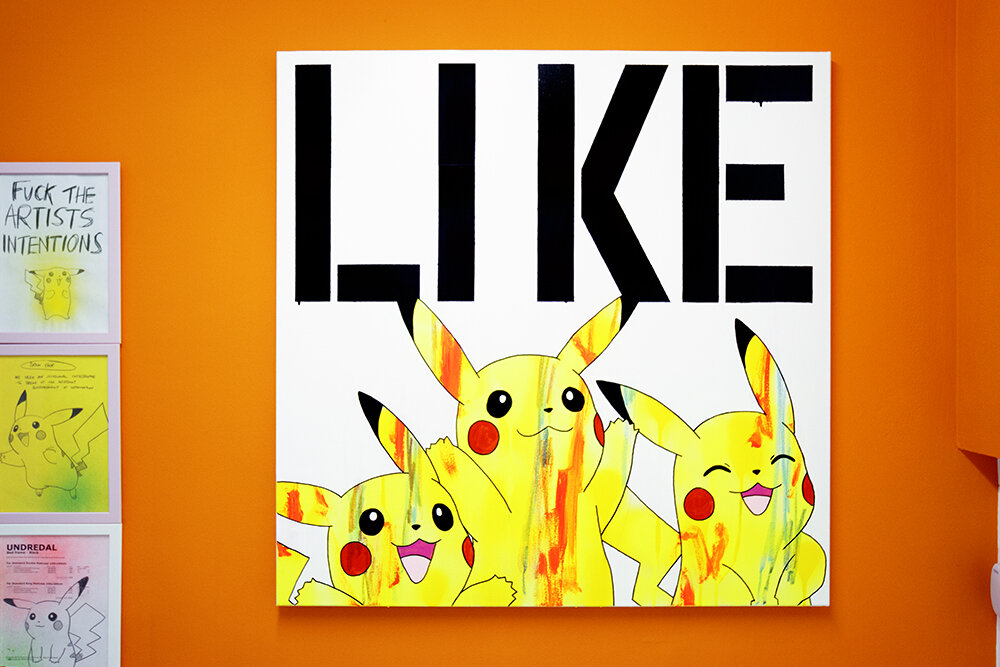
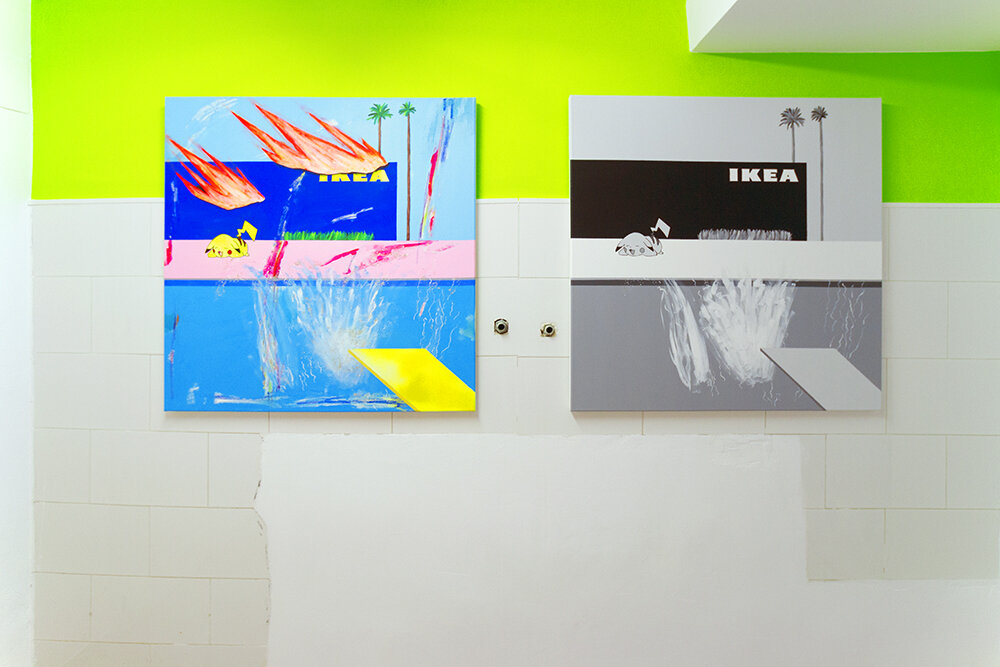
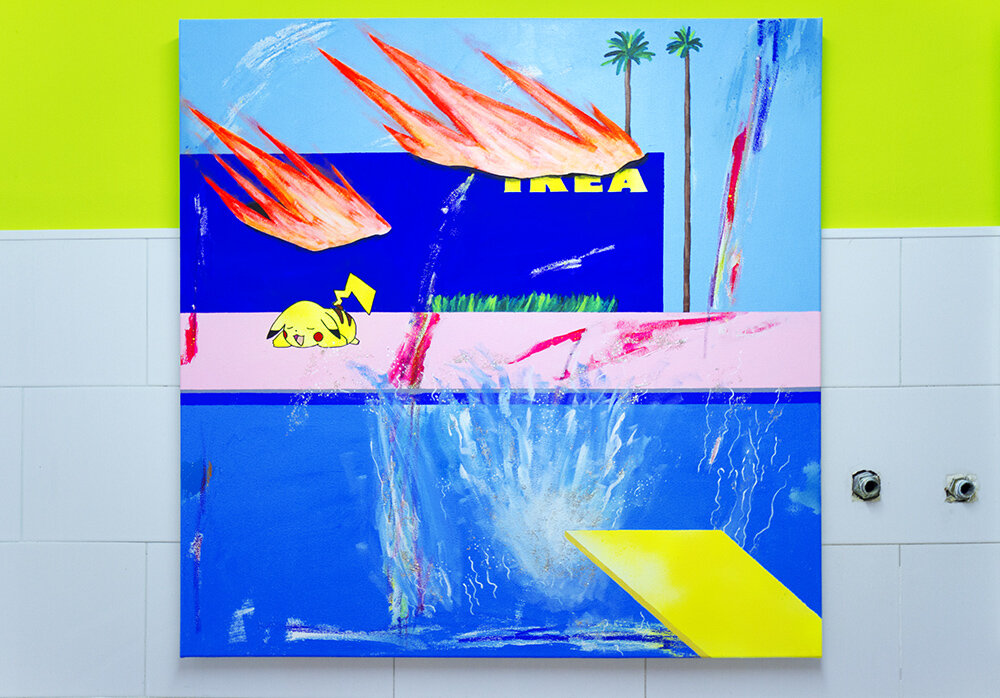
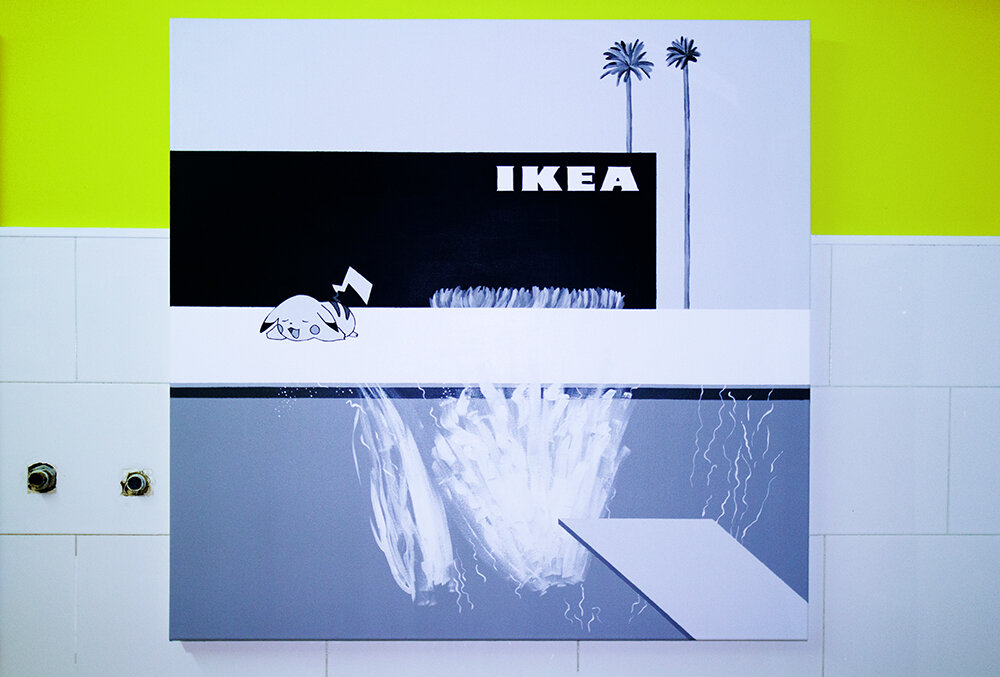
Jelato Love is happy present the inaugural exhibition, the first solo show of British artist Michael Pybus in Spain, titled: 'I'm sure they have very different paintings on their own walls'.
New paintings, collages, and drawings combine and repeat "viral" iconography sampled from the contemporary landscape. Pybus modifies and remixes art historical references with imagery from well known global franchises, such as Pokemon, and IKEA, to create new hybrids, that tap into and re-narrate our collective consciousness.
Just as Pop Art challenged traditional art criticism and notions of taste, as part of the greater social revolution taking place at the end of the 1960s, the internet and globalisation have widened an understanding of visual cues – think of meme culture, emojis, and personal branding. The internationally recognised brands IKEA, representing cost-effective, design conscious, transportable furnishings, and Pokemon, evocative of an emotive relationship to youth, play, and collecting, are used for their symbolic associations to create complex and comic dialogues with other symbols. Duchamp's 1917 artwork 'Fountain', a signed urinal that trolled the very idea of originality, symbolically represents the readymade that was created at the dawn of a century which would be dominated by the cult of the individual, expressed through the consumption of identical mass-produced goods.
Each work in the exhibition combines these diverse subjects, to construct new, often contradictory meanings or questions. Pybus is also interested in how the ubiquity of cameras has driven a culture of individuals constructing their identities through images. Objects, locations, and moments become "stolen" by images, creating lifestyle montages for the sake of self-promotion. In the age of Instagram, all is up for grabs, from green Matcha smoothies to multi-million dollar masterpieces, everything is reduced, repackaged, and filtered through the camera-phone to become symbolic props in a virtual stream that often represents nothing more than the desire to curate highly edited fictional narratives, for anonymous public consumption.
Throughout this exhibition, the star of the Pokemon phenomenon, Pikachu 'infects' each artwork, appearing as a 'sticker', placed on top of other references, relating to the increasing user personalisation options social media applications, such as Instagram and Snapchat offer, encouraging the self-serving protagonist, or 'influencer' to claim ownership of the image before posting to their feeds.
The pervasiveness of creation, reproduction, and distribution, of images, has therefore affected the value of both objects and experiences. The digital age has ushered in a competitive 'attention economy', where, overloaded with an infinite menu of information and choice, our attention spans have withered to a scarce and, increasingly fickle, commodity. An obvious example is, how after years of banning photography, museums started encouraging it. At an exhibition of Murakami at the Museum of Fine Arts, Boston, wall labels read: ' If you don't share a photo from this exhibition, did you really visit?', this global turnaround on museum policy has helped transform them into conveyor belts for selfie backgrounds, exit via the gift-shop.
Pybus' iconoclastic cultural commentary combines and amplifies competing modes of excess, visual stimulants, referential language, and repetition. Digital media's information overload and art historical references are layered with a trademark irreverent approach, creating a wild and diverse cognitive pinball which is at once celebratory and cerebral.